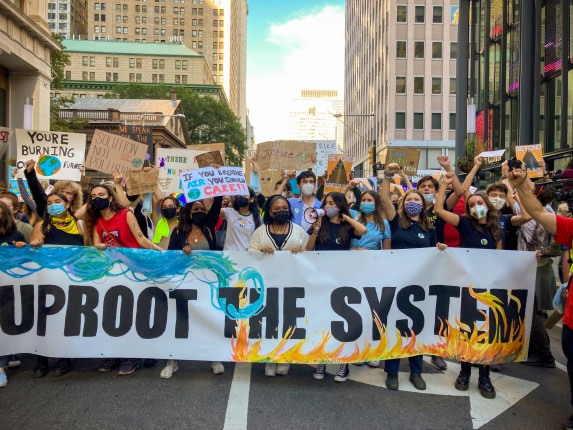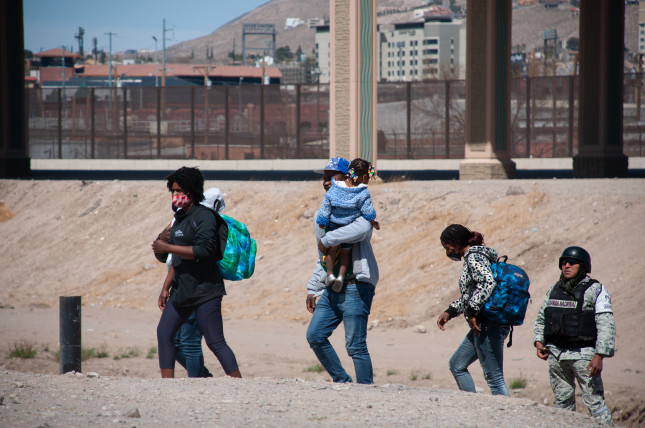-
Responsible Research Won’t Be Enough to Control Solar Geoengineering
›
As climate change worsens, the once-unimaginable power to use technology to cool the planet—a method known as “solar geoengineering”—has quietly entered the realm of possibility. Yet the prospect of developing such planet-altering technologies has launched an intense debate: Can this be achieved responsibly? Should it be attempted at all?
-
Exploring Climate Security: Why Bad Outcomes Occur in Some Places and Not Others
›
My latest book—States and Nature: The Effects of Climate Change on Security (Cambridge University Press)—has been more than two decades in the making. And as I reflect on that journey, I see significant parallels between my own trajectory and the larger efforts to define and refine thinking about climate security.
-
PERAC: A Voice for Environment and Indigenous Peoples in Conflict’s Grip
›
The harm that comes to the environment during armed conflict is often permanent, yet the lack of advocates to fight for its protection as they happen creates a deafening stillness. Indeed, this state of affairs has led to the environment to be seen as the “silent victim of war.” Vietnam, Kuwait, Syria, Afghanistan, Ukraine, and several more nations have been permanently damaged due to the destruction of the environment during armed conflict which can persist long after hostilities have ceased.
-
New Security Broadcast | Clionadh Raleigh on Reframing “Climate Security”
› About half the world’s population lives in an area of active or latent conflict. And few corners of the planet are not feeling the effects of climate change. But in this week’s New Security Broadcast, researcher Clionadh Raleigh cautions against drawing too strong a connection between the two phenomena in an interview with ECSP Director Lauren Risi.
About half the world’s population lives in an area of active or latent conflict. And few corners of the planet are not feeling the effects of climate change. But in this week’s New Security Broadcast, researcher Clionadh Raleigh cautions against drawing too strong a connection between the two phenomena in an interview with ECSP Director Lauren Risi. -
Public Participation: A Counter to Climate Policy Backdraft?
›
In an increasingly unpredictable world of pandemics, conflict, and disasters, climate change is often at the center of conversations about the instability of global affairs. From California wildfires to droughts across East Africa, the role of climate cannot be ignored in any analysis of global unpredictability. And citizens around the world know it. Growing global public support for governments to aggressively act on climate change has led to an increase in policy action on climate issues.
-
New Security Broadcast | Jeff Colgan on Oil Politics and International Order
› Debates around whether and to what extent international order is changing can be misguided “so long as we are thinking about international order as a single, monolithic thing,” says Jeff Colgan, Associate Professor of Political Science and director of the Climate Solutions Lab at Brown University in this week’s episode of New Security Broadcast. Colgan spoke at a recent Wilson Center event featuring his new book, Partial Hegemony: Oil Politics and International Order. In the book, Colgan challenges the idea of a monolithic ‘global order’ and shows that international order instead comprises a set of interlinked “subsystems.” In a world where there is no single, all-encompassing hegemon to trigger universal global change, this framework of subsystems allows us to explore how particular geopolitical realms can alter without fundamentally changing the geopolitical landscape, he says.
Debates around whether and to what extent international order is changing can be misguided “so long as we are thinking about international order as a single, monolithic thing,” says Jeff Colgan, Associate Professor of Political Science and director of the Climate Solutions Lab at Brown University in this week’s episode of New Security Broadcast. Colgan spoke at a recent Wilson Center event featuring his new book, Partial Hegemony: Oil Politics and International Order. In the book, Colgan challenges the idea of a monolithic ‘global order’ and shows that international order instead comprises a set of interlinked “subsystems.” In a world where there is no single, all-encompassing hegemon to trigger universal global change, this framework of subsystems allows us to explore how particular geopolitical realms can alter without fundamentally changing the geopolitical landscape, he says. -
Redefining National Security
› -
Tethering to Human Rights in the Pushes and Pulls of Human Mobility
›“In the movement toward complex solutions, at the heart of it all we’re talking about individuals with their own complex issues as they are moving through different scenarios,” said Shanna McClain, Disasters Program Manager with the National Atmospheric and Space Administration, at last month’s International Conference on Environmental Peacebuilding. The panel discussion, “Resource Implications of Human Mobility and Migration,” focused on what data shows—and doesn’t show—are the complex linkages between climate, conflict, and mobility. Panelists discussed how more integrated programming and policy actions are needed to make migration safe, orderly, and voluntary, and how to keep human rights at the center of the complex processes.
Showing posts from category environmental security.


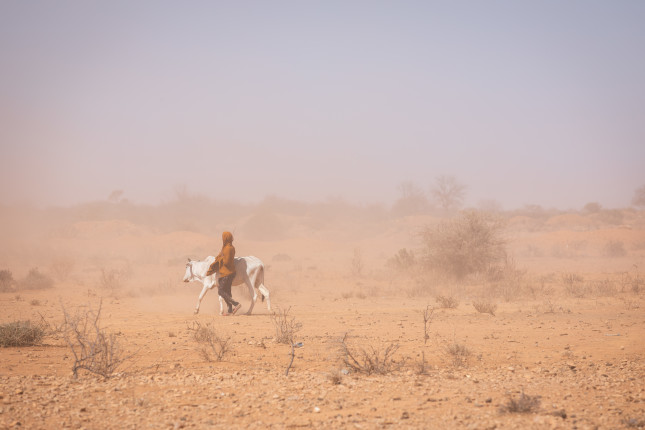
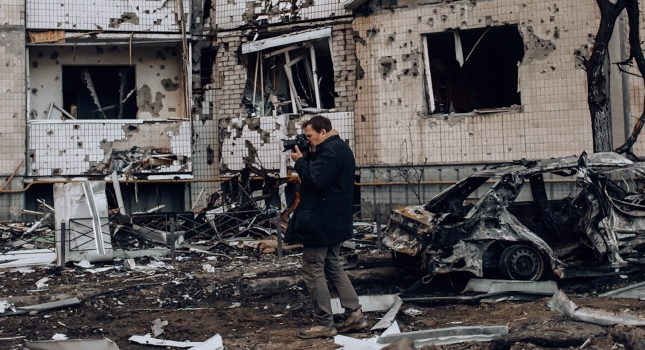
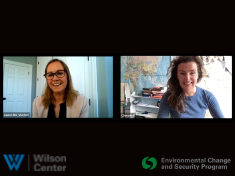 About half the world’s population lives in an area of active or latent conflict. And few corners of the planet are not feeling the effects of climate change. But in this week’s New Security Broadcast, researcher Clionadh Raleigh cautions against drawing too strong a connection between the two phenomena in an interview with ECSP Director Lauren Risi.
About half the world’s population lives in an area of active or latent conflict. And few corners of the planet are not feeling the effects of climate change. But in this week’s New Security Broadcast, researcher Clionadh Raleigh cautions against drawing too strong a connection between the two phenomena in an interview with ECSP Director Lauren Risi.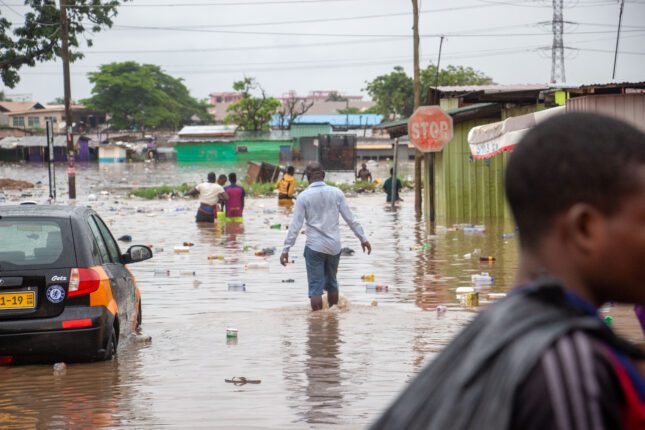
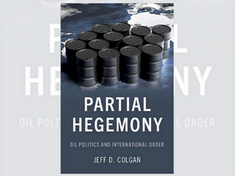 Debates around whether and to what extent international order is changing can be misguided “so long as we are thinking about international order as a single, monolithic thing,” says Jeff Colgan, Associate Professor of Political Science and director of the Climate Solutions Lab at Brown University in this week’s episode of New Security Broadcast. Colgan spoke at a recent Wilson Center
Debates around whether and to what extent international order is changing can be misguided “so long as we are thinking about international order as a single, monolithic thing,” says Jeff Colgan, Associate Professor of Political Science and director of the Climate Solutions Lab at Brown University in this week’s episode of New Security Broadcast. Colgan spoke at a recent Wilson Center 